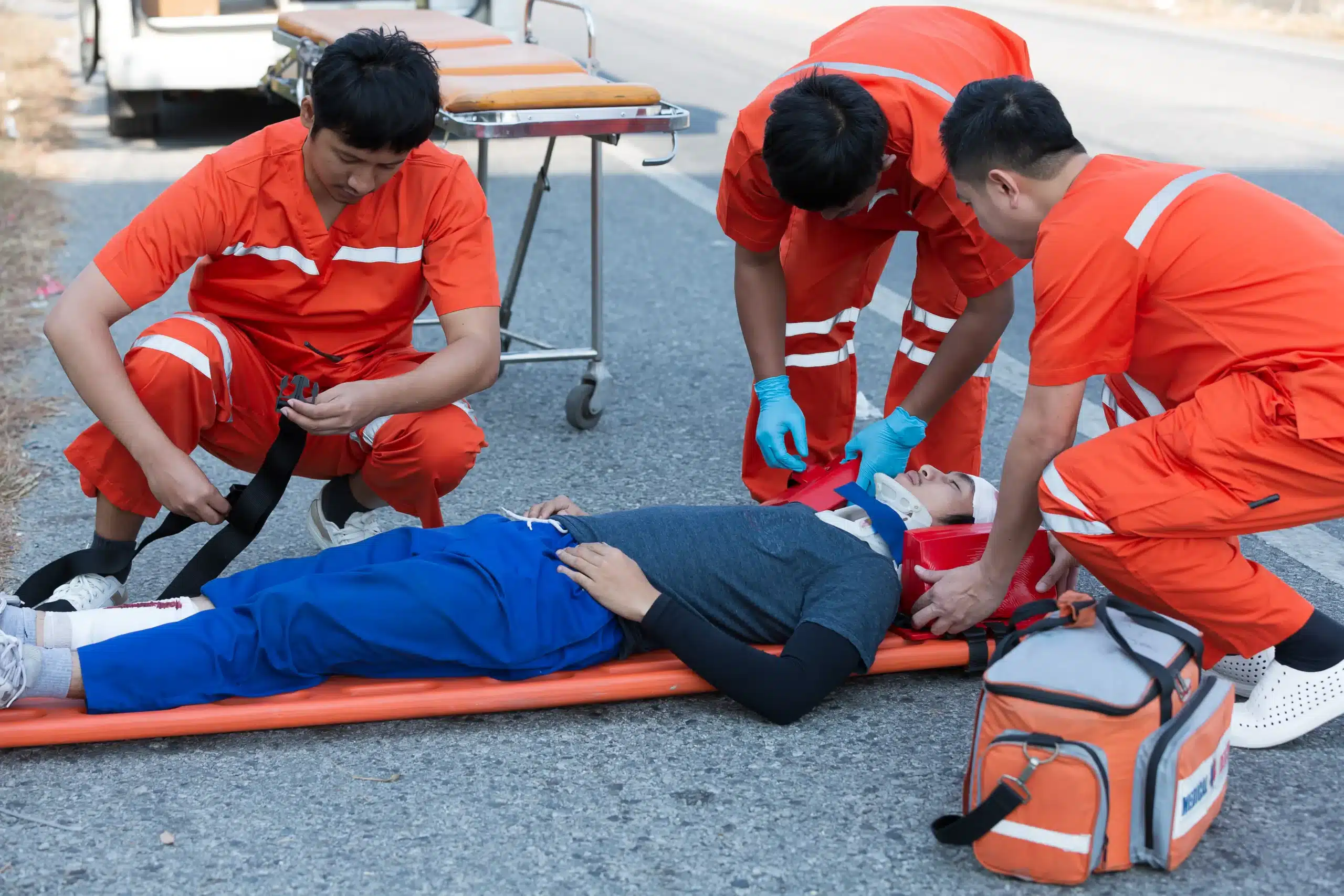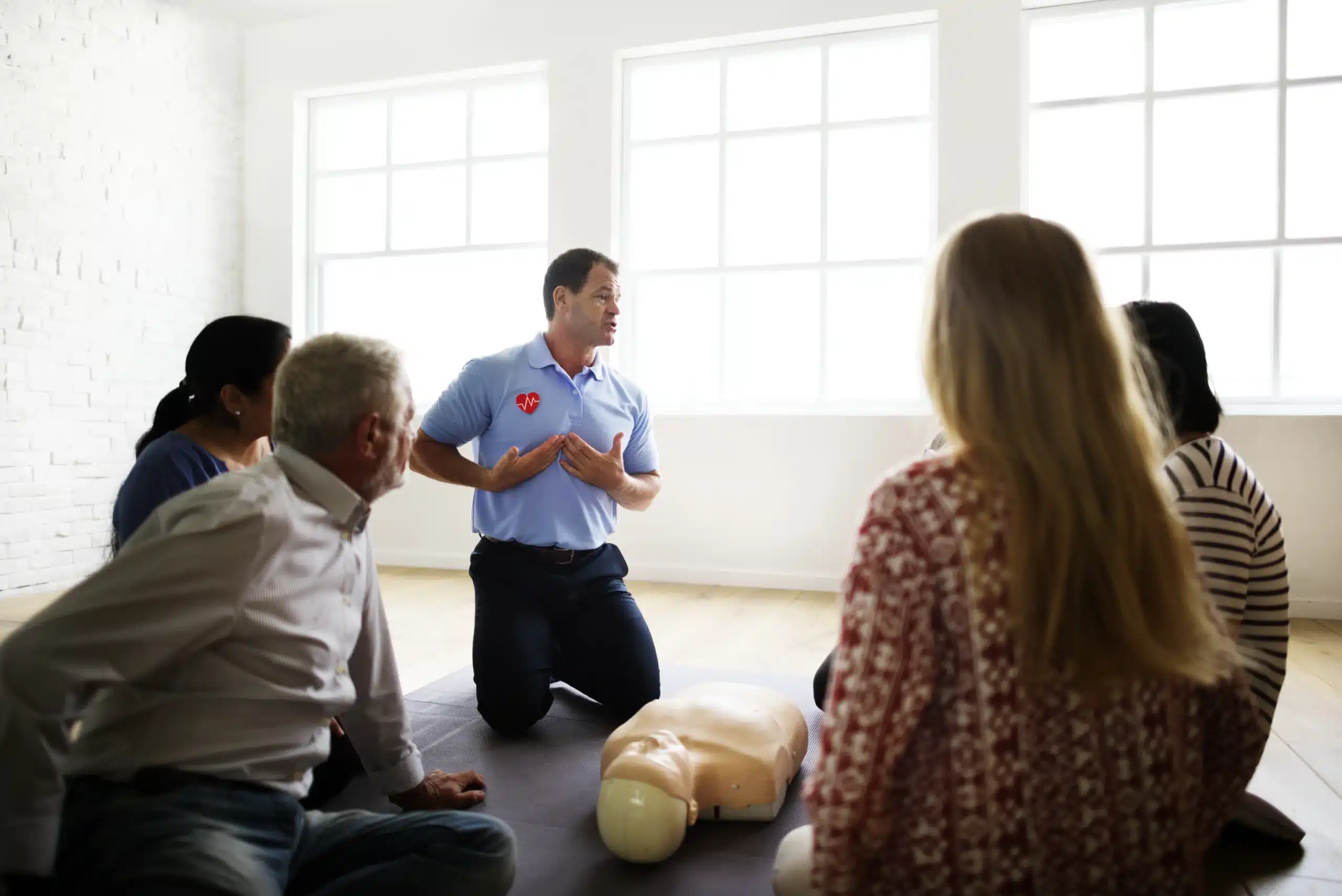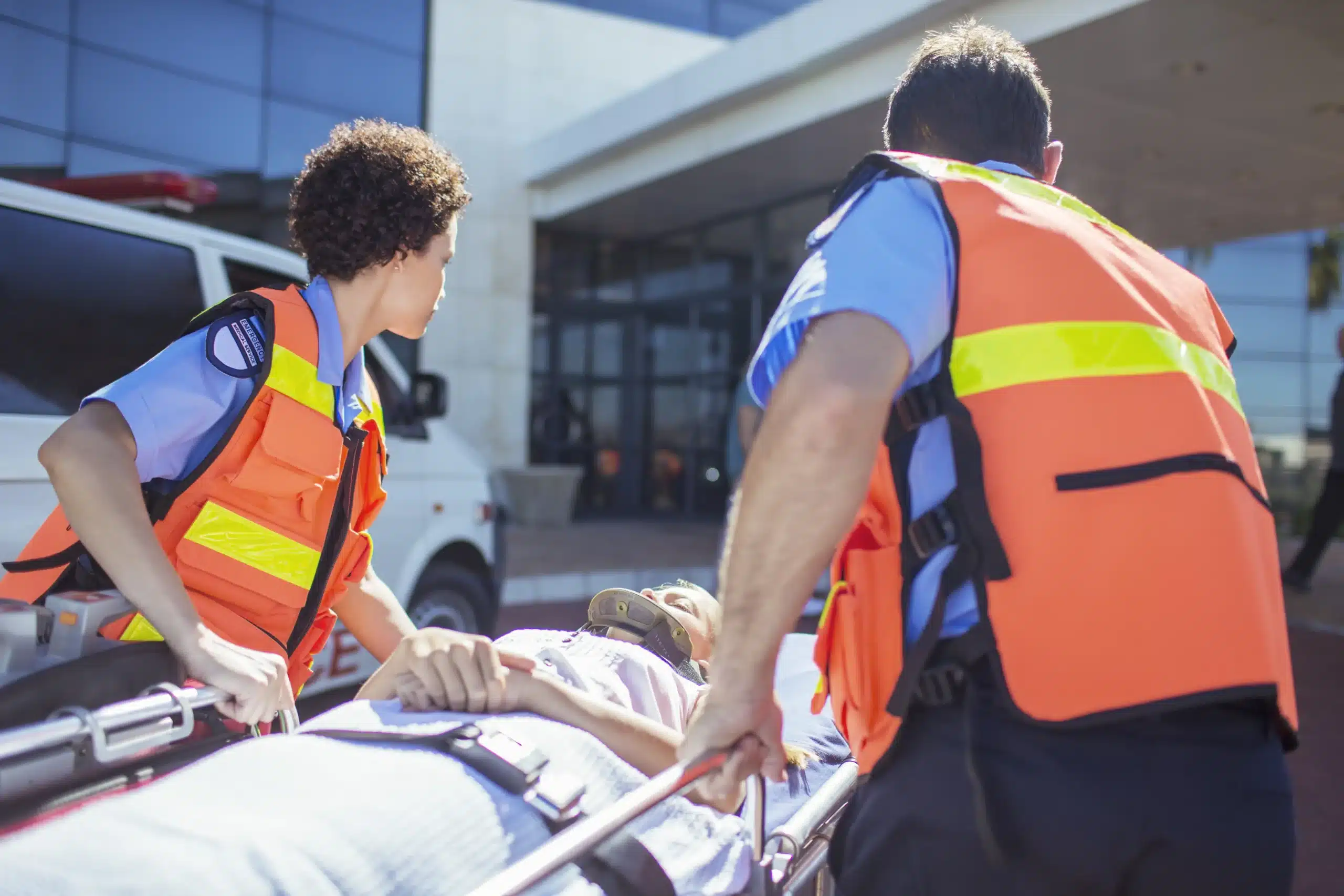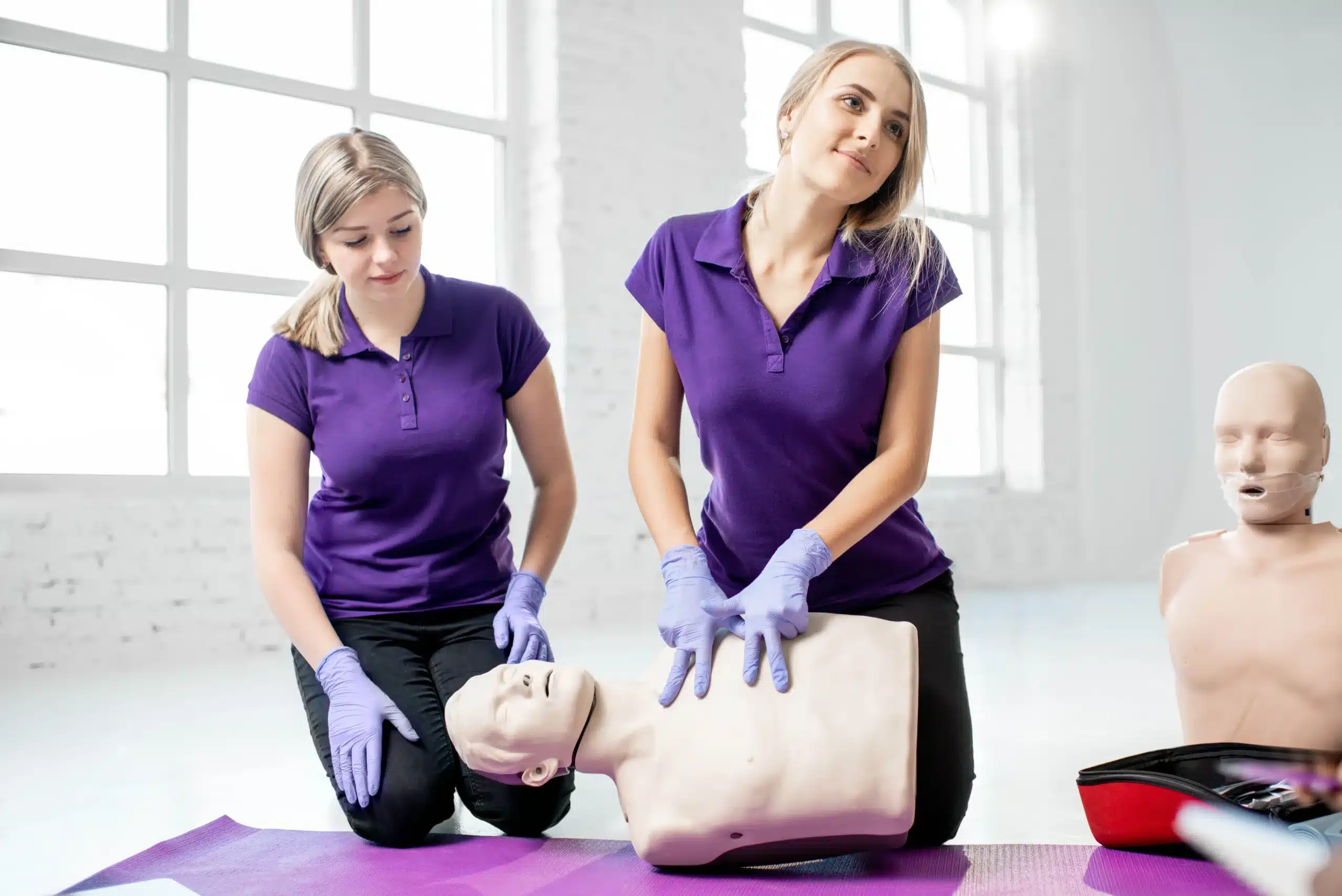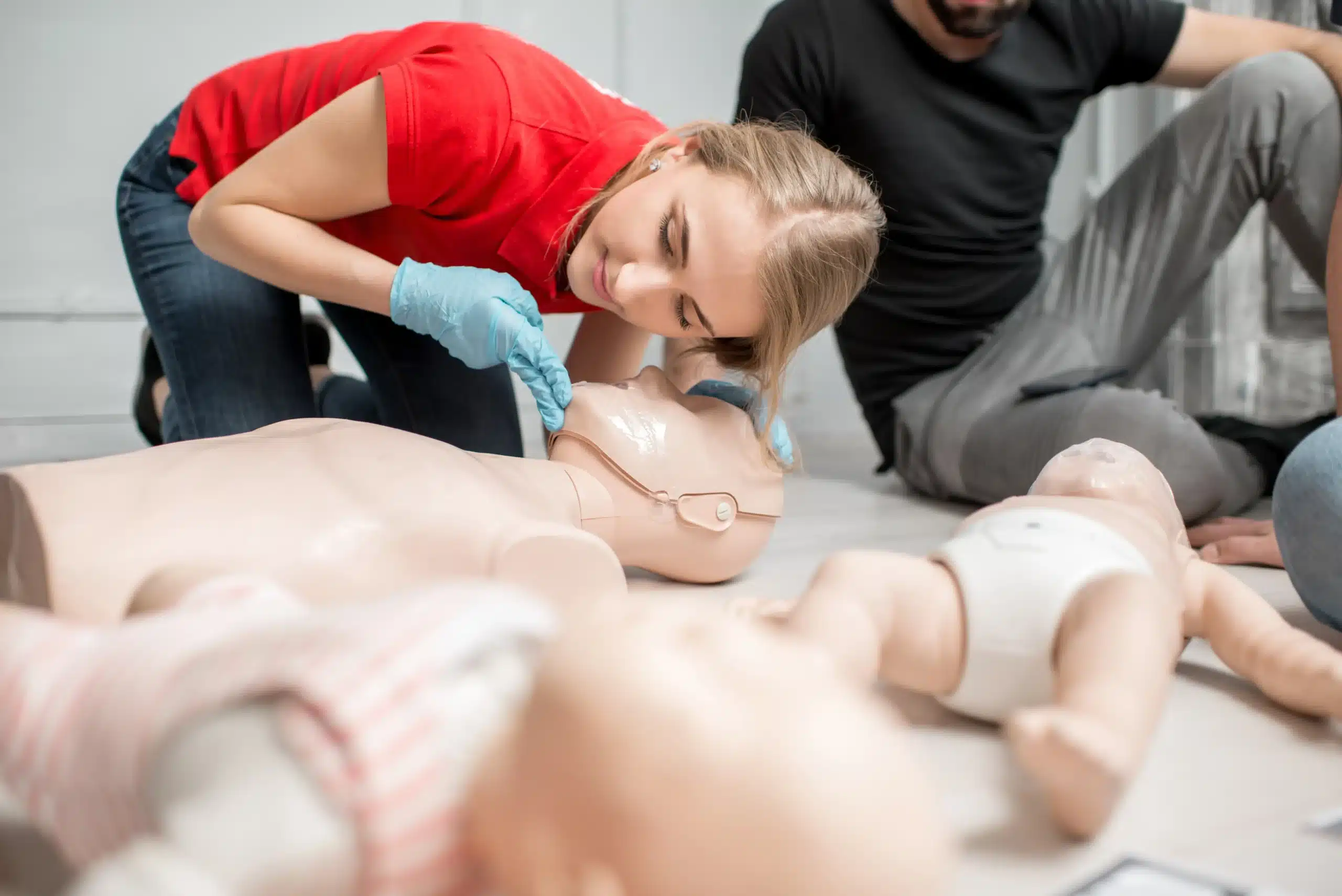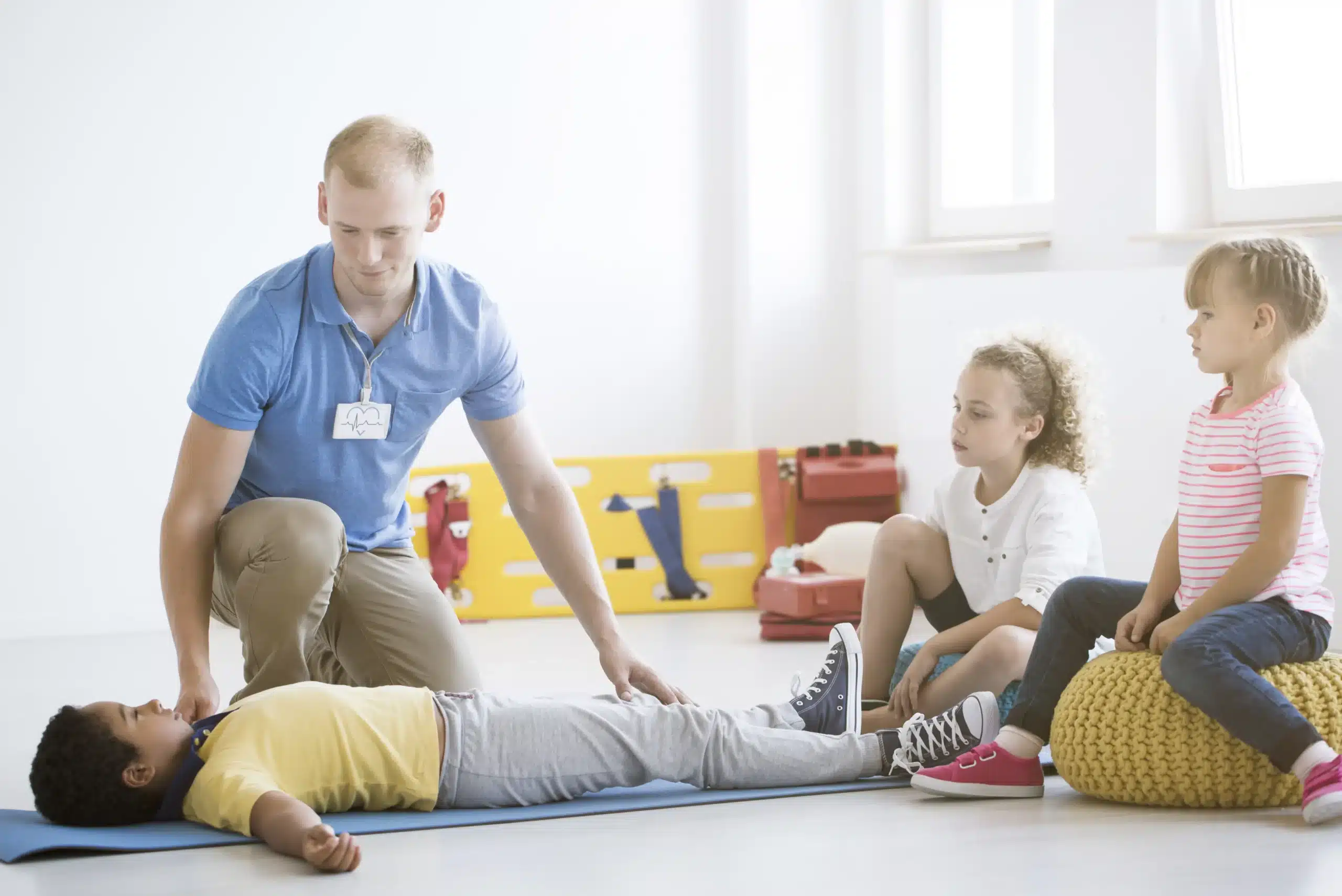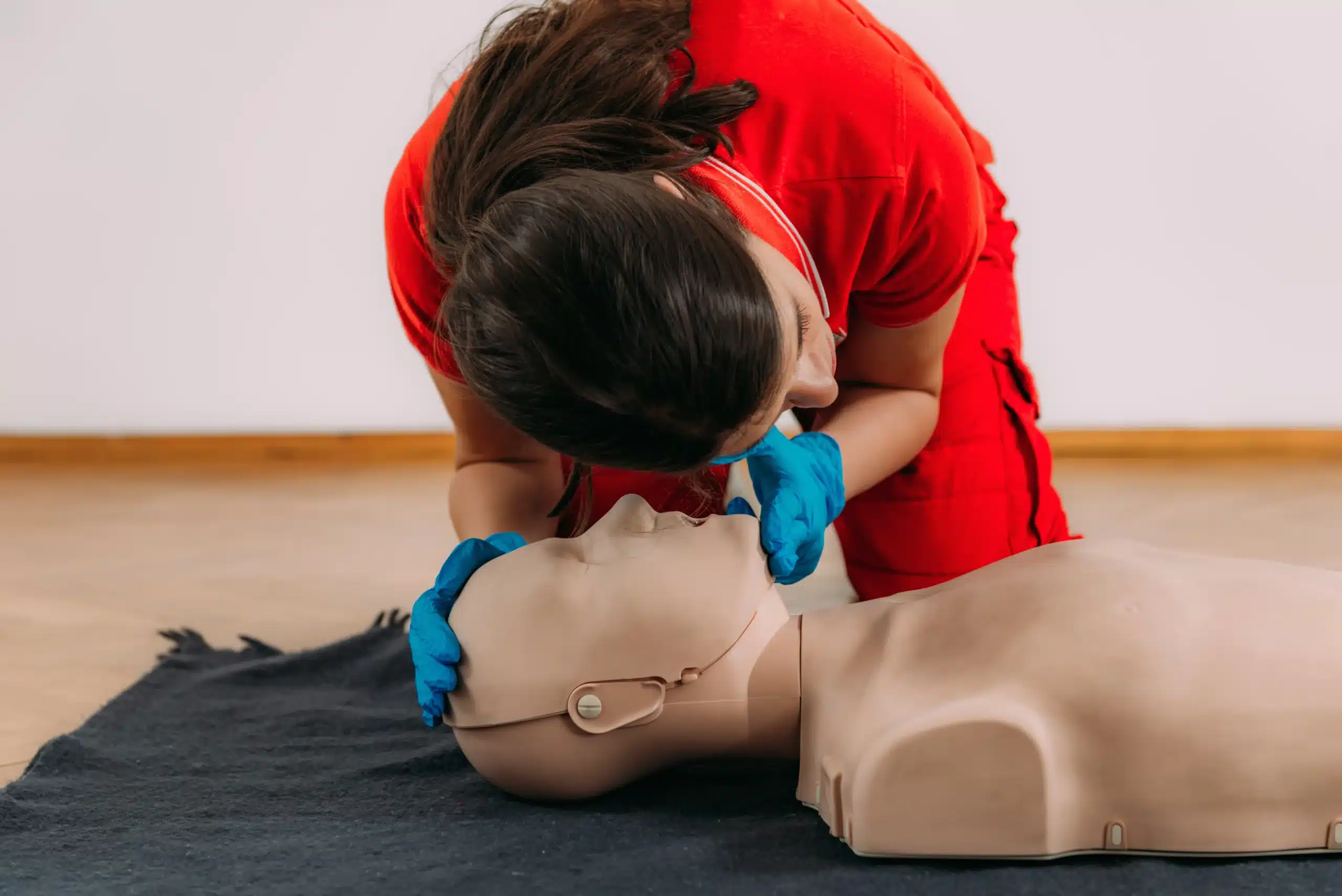Living in Stockton means being part of a community that cares deeply about its children. And part of that care involves being prepared for anything, especially when it comes to their health and safety. This article focuses on the critical importance of pediatric CPR and first-aid training in Stockton. We’ll explore why these skills are so crucial, where to find certified training programs, and what to expect during a course. Whether you’re entrusted with the care of children daily or simply want to be equipped for emergencies, this guide will provide you with the information and resources you need to make informed decisions and potentially save a life.
Key Takeaways
- Pediatric CPR and First Aid equip you to handle childhood emergencies: These skills empower you to confidently respond to various situations, from minor injuries to life-threatening events.
- Choose a course that fits your needs and schedule: Consider factors like accreditation, instructor experience, and hands-on practice when selecting a program. Look for options like those offered by Safety Training Seminars, with flexible scheduling and a low-price guarantee.
- Maintain your skills through practice and recertification: Regularly practicing CPR and First Aid techniques and renewing your certification ensures you’re always prepared to act quickly and effectively in a crisis.
What is Pediatric CPR and First Aid?
Pediatric CPR and First Aid focuses on the specific needs of infants and children during medical emergencies. It equips caregivers, parents, and healthcare providers with the skills to respond effectively to situations like choking, breathing difficulties, and cardiac arrest in young ones. This specialized training covers resuscitation techniques tailored to children’s smaller airways and unique physiology. It also addresses common childhood injuries and illnesses, offering practical guidance on administering first aid until professional medical help arrives. Learning these skills can significantly impact a child’s outcome during a crisis.
Why These Skills Are Crucial for Children
Children are naturally curious and prone to exploring, sometimes leading to accidents. Knowing Pediatric First Aid and CPR allows you to respond confidently and effectively if a child in your care experiences a medical emergency. These skills are especially important for childcare providers, educators, and parents, as they are often the first responders in such situations. Being prepared can lessen the severity of injuries and even save lives. CPR training gives you the tools to stabilize a child until professional medical personnel arrive. This immediate action can be critical.
Key Differences Between Adult and Pediatric CPR
While the basic principles of CPR are consistent across age groups, there are important distinctions between adult and pediatric CPR. Children have smaller airways and different physiological responses, requiring modified techniques for chest compressions, rescue breaths, and airway management. Pediatric First Aid courses address the specific needs of infants and children, while standard First Aid courses typically focus on adults. For example, the depth of chest compressions and the method for checking a pulse differ depending on the child’s age. Understanding these key differences is essential for providing safe and effective care during a pediatric emergency. Choosing the right course ensures you receive appropriate training for the age group you work with or care for.
Pediatric CPR and First Aid Courses in Stockton
Finding the right pediatric CPR and first aid class can feel overwhelming, but several excellent providers serve the Stockton area. Here’s a quick rundown to help you find the best fit.
Safety Training Seminars
Safety Training Seminars offers various American Heart Association (AHA) courses, including Pediatric CPR and First Aid training. Their classes equip caregivers with the skills to handle emergencies involving children. A major plus? They offer classes every day of the week in Stockton, making scheduling easy. Check out their AHA course options and low price guarantee.
San Joaquin Safety Council
The San Joaquin Safety Council provides a comprehensive course covering Infant/Child/Adult CPR, AED use, and Pediatric First Aid. This course is especially helpful for parents, caregivers of children aged eight and under, and licensed childcare providers. It’s EMSA-approved, which is essential for anyone working in childcare. Learn more about their CPR and first aid training.
Life First Training Center
Life First Training Center offers a Heartsaver Pediatric First Aid and CPR/AED class designed for people who work with children, including childcare providers and foster parents. This course is also EMSA-approved, meeting California’s requirements for childcare providers. Visit the Life First Training Center website for details.
American Red Cross
The American Red Cross offers an Adult and Pediatric CPR/AED course that covers the latest techniques and best practices. This class prepares you to respond to breathing and cardiac emergencies for people of all ages, from infants to adults. Find a Red Cross course.
Valley Mobile CPR Training
Valley Mobile CPR Training & Certifications focuses on providing high-quality first aid courses tailored to individuals and organizations in the Stockton area. Their programs will help you feel prepared to handle pediatric emergencies. Visit the Valley Mobile CPR Training website to explore their courses.
What Happens in a Pediatric CPR and First Aid Course?
Taking a pediatric CPR and first aid course equips you with the skills to respond to emergencies involving infants and children. These courses cover a range of topics, from CPR techniques to common childhood illnesses and injuries. Let’s explore what you can expect during your training.
Learn CPR for Infants and Children
This section focuses on the core techniques of CPR for both infants and children. You’ll learn how to assess a child’s responsiveness and breathing, perform chest compressions and rescue breaths, and how to relieve choking. The techniques differ slightly between infants and children, so instructors emphasize these crucial distinctions. This hands-on practice builds your confidence and prepares you to act quickly in a real emergency.
Common Childhood Emergencies
Beyond CPR, the course addresses other common emergencies affecting children. You’ll learn how to recognize and respond to allergic reactions, seizures, burns, and other injuries. Understanding how to manage these situations calmly and efficiently is a key takeaway. This training is crucial for anyone working with children.
Using AEDs on Children
Automated External Defibrillators (AEDs) can be life-saving in cardiac emergencies. This part of the course covers the safe and effective use of AEDs on children, including how to select the appropriate pad size and deliver the shock if necessary. The course teaches how to respond to breathing and cardiac emergencies for victims of all ages.
Essential First Aid for Children
First aid skills are essential for addressing minor injuries and illnesses in children. You’ll learn how to treat cuts, scrapes, nosebleeds, and other common childhood ailments. This certification builds confidence and competence in providing a safe environment for children. This knowledge allows you to provide immediate care and comfort while deciding if further medical attention is needed.
Costs and Benefits of Pediatric CPR and First Aid Training
Knowing the costs associated with pediatric CPR and first aid training, and understanding its immense value, helps you make informed decisions. This knowledge empowers you to choose the best course for your needs and budget.
Course Fees and Packages
Pediatric CPR and first aid training courses equip parents, caregivers, and childcare providers with essential, life-saving skills. The San Joaquin Safety Council offers a comprehensive course covering Infant/Child/Adult CPR, AED use, and Pediatric First Aid. This course is particularly beneficial for parents and caregivers of children aged eight and under, as well as licensed childcare providers. It’s also EMSA-approved, fulfilling part of the training requirements for licensed childcare providers in California. Contact them directly to inquire about current pricing. Many organizations, like Safety Training Seminars, offer various course packages. Bundling CPR with first aid or other certifications often leads to cost savings.
Group Discounts and Offers
If you’re training a group, explore group discounts. Safety Training Seminars, a woman-owned AHA Training Center, offers high-quality American Heart Association courses, including BLS, ACLS, PALS, CPR, and First Aid. They provide these courses daily in Stockton and surrounding areas, making group training easy to schedule. Check their website or contact them to discuss group discounts and package deals.
EMSA Certification Costs
For licensed childcare providers in California, there’s an added cost for EMSA certification. This involves obtaining EMSA stickers for compliance. The San Joaquin Safety Council notes an additional fee for these stickers. This small added cost ensures participants meet California’s regulatory standards while gaining valuable skills.
Get Certified and Stay Up-to-Date
Knowing how to respond to emergencies can make all the difference, especially when children are involved. Getting certified in Pediatric CPR and First Aid is the first step, but staying up-to-date is just as important. Let’s break down how to get certified and maintain those life-saving skills.
Initial Certification
Getting your initial certification is straightforward. Find a reputable training provider like Safety Training Seminars, offering courses that cover CPR for infants and children and how to handle common childhood emergencies like choking or allergic reactions. Pediatric First Aid and CPR training equips caregivers with the skills and confidence to respond effectively in emergencies. For those working in childcare in California, ensure the course you choose, like our EMSA Child Care Health & Safety course, meets the state’s requirements for licensed providers and foster parents. Even if you’re not a professional caregiver, these skills are invaluable for any parent or anyone who cares for children.
Renew Your Certification
CPR and First Aid certifications typically expire after two years. It’s essential to renew your certification to stay current with the latest guidelines and techniques. Refresher courses help reinforce your skills and knowledge, ensuring you’re prepared to act quickly and confidently in a crisis. Don’t let your skills lapse; regular renewal keeps your knowledge fresh and your responses sharp. Check with your certifying organization, such as the American Red Cross, for renewal options.
Practice Regularly
Even with certification, regular practice is key to maintaining proficiency in CPR and First Aid. Think of it like any other skill—the more you practice, the more confident and effective you become. Regularly reviewing the techniques and procedures helps solidify your muscle memory, ensuring you can perform them efficiently under pressure. Practicing these life-saving techniques can truly make a difference in a real emergency, potentially turning a tragic situation into a positive outcome. Consider practicing with family or friends to create a comfortable learning environment and build confidence in your abilities. You can even use online resources or videos to guide your practice sessions. Resources like CPR Classes Near Me offer helpful information and tips for ongoing practice.
Choose the Right Course in Stockton
Finding the right pediatric CPR and first aid course in Stockton comes down to a few key factors. Take the time to research and choose a program that meets your specific needs and learning style. It’s an investment in life-saving skills.
Accreditation and Recognition
First things first, check if the program is accredited and recognized by respected organizations. For childcare providers in California, make sure the course is EMSA-approved, like the ones offered at Safety Training Seminars. This is often a licensing requirement, so it’s critical. Even if you’re not a childcare provider, an accredited program ensures you’re learning current, reliable information.
Instructor Qualifications
The instructor’s expertise matters just as much as the curriculum. Look for courses led by experienced professionals with a strong background in pediatric care. Our instructors at Safety Training Seminars are not only certified but also bring real-world experience to the classroom, making learning more engaging and practical. Ask about the instructors’ qualifications before signing up—it can make all the difference.
Hands-on Practice
CPR and first aid are hands-on skills. You need more than just textbook knowledge; you need the confidence to act in a real emergency. Choose a course that emphasizes hands-on practice with equipment like individual manikins. This helps build muscle memory and the ability to react effectively under pressure. At Safety Training Seminars, we prioritize practical training to ensure you’re fully prepared. Learn more about our low price guarantee.
Course Length and Format
Finally, consider what works best for your schedule and learning preferences. Do you prefer a one-day intensive course or something spread out? Do you learn best in person, online, or a blended format? Safety Training Seminars offers a variety of course formats to accommodate different needs. Check out our website for details on scheduling and formats.
Stockton vs. Nearby Cities
When choosing Pediatric CPR and First Aid certification, comparing options in Stockton with nearby cities like Lodi and Tracy helps you find the best fit. Factors like course content, price, and the training provider’s reputation all play a role.
Course Content and Quality
Courses differ in the topics they cover. The San Joaquin Safety Council offers a course covering Infant/Child/Adult CPR, AED use, and Pediatric First Aid—a good choice for parents and caregivers. Life First Training Center has a Heartsaver Pediatric First Aid and CPR/AED class designed for those working with children or involved in foster or adoptive parenting. Make sure the course aligns with your needs. Do you need basic first aid or more specialized training? Carefully review course descriptions to see what each program includes.
Pricing and Value
Cost is always important. A more expensive course might offer more comprehensive training or extra certifications. The San Joaquin Safety Council’s course covers eight hours of the 16 required for licensed childcare providers, a valuable benefit. Consider the long-term value when comparing prices. Our Low Price Guarantee helps you get the best deal.
Provider Reputation and Specialties
The provider’s reputation and expertise matter. Safety Training Seminars is a woman-owned American Heart Association Training Center known for high-quality instruction. Life First Training Center offers various health and safety courses, while the Cherry Tree Group focuses on CPR training. Research providers, read reviews, and consider their specialties to find an experienced instructor with a solid reputation and positive student feedback.
Benefits of Training in Stockton
Choosing the right location for your pediatric CPR and first aid training is an important decision. Training in Stockton offers distinct advantages, from specialized local expertise to convenient scheduling and the chance to support local businesses.
Local Expertise
Stockton boasts experienced instructors familiar with the specific needs of the community. Safety Training Seminars, a woman-owned American Heart Association Training Center, offers courses like BLS, ACLS, PALS, CPR, and First Aid tailored to Stockton residents. This local focus ensures the training is relevant and accessible. For additional options, Life First Training Center provides various health and safety courses, including CPR, First Aid, and Child Safety, all taught by knowledgeable professionals within the community.
Convenience and Accessibility
Finding a course that fits your busy schedule is easier in Stockton, with many organizations offering flexible class times. Stockton CPR Certification provides various certification courses—BLS, ACLS, PALS, CPR, and First Aid—at different times throughout the week. This accessibility makes it easier for busy parents, caregivers, and professionals to obtain crucial life-saving skills. Conveniently located courses like the Infant/Child/Adult CPR, AED & Pediatric First Aid program are EMSA-approved for licensed childcare providers, meeting regulatory requirements while remaining accessible.
Support Local Businesses
Enrolling in a local training program not only benefits you but also strengthens the Stockton community. When you choose a local provider like ChildCareEd for Pediatric First Aid and CPR certification, you contribute to the local economy and support businesses dedicated to community safety. Valley Mobile CPR Training & Certifications focuses on providing high-quality first aid training within the valley, emphasizing the importance of local expertise in emergency preparedness. Supporting these businesses means investing in a network of skilled professionals ready to respond to emergencies.
Prepare for Your Course
Getting ready for your Pediatric CPR & First Aid training involves more than just signing up. A little preparation beforehand will make sure you get the most out of your course. Here’s what you should know:
What to Bring
For in-person training, remember to bring a few essentials. You’ll need a blue or black pen for filling out any paperwork. Don’t forget your driver’s license or other valid photo ID for check-in. A face mask may also be required, so it’s best to have one on hand. These items are generally not provided at the training location, so double-check with your chosen provider if you have any questions. Check the course requirements beforehand to be fully prepared.
Pre-course Materials
Many Pediatric CPR and First Aid courses utilize blended learning, combining online coursework with in-person skills sessions. If your course follows this format, make sure you complete the online portion before attending the hands-on training. This often involves reviewing modules and taking a short online exam. You’ll likely need to email your AHA Heartsaver® Pediatric First Aid CPR AED Online certificate to the training provider as proof of completion. This pre-course work lays the foundation for the practical skills you’ll learn during the in-person blended learning session.
Mental Preparation
While gathering your physical materials is important, preparing yourself mentally is equally crucial. Pediatric CPR can be emotionally challenging, and it’s normal to feel some anxiety about learning these life-saving skills. Recognize that these feelings are valid. Reading about the psychological challenges associated with pediatric emergencies can be helpful. Knowing what to expect can make the training experience less stressful and better prepare you to respond effectively under pressure. Consider reviewing some of the common psychological challenges before your course.
Using Your Skills
Remember, the skills you gain in this training are designed for real-world application. The goal is to equip you with the confidence to act quickly and effectively in a pediatric emergency. Think about how you might apply these skills in different scenarios involving children. This will help solidify your understanding and prepare you to use your training when it matters most. Pediatric First Aid and CPR training is a powerful tool for anyone working with or caring for children, providing the knowledge and skills to potentially save a life.
How Training Helps Caregivers and Parents
Knowing how to respond to a medical emergency involving a child can be incredibly empowering. Pediatric CPR and first aid training equips parents and caregivers with the skills and knowledge to handle such situations, offering significant benefits for both the caregiver and the child.
Build Confidence in Emergencies
Emergencies are stressful, especially when a child is involved. Pediatric first aid and CPR training gives caregivers the skills and the confidence to respond quickly and effectively. Knowing you can handle a crisis, from a minor cut to a life-threatening emergency like choking, makes all the difference. This confidence translates into quicker reactions and more effective care, potentially improving outcomes for the child. CPR training provides caregivers with the tools they need to manage these difficult situations.
Improve Communication
Effective communication is essential during a medical emergency. Training helps caregivers communicate clearly with emergency responders, other caregivers, and even the child, if appropriate. Explaining the situation concisely and accurately ensures that first responders have the information they need when they arrive. CPR and first aid certification also improves communication within a childcare setting, creating a safer and more organized response to any incident.
Legal and Ethical Considerations
In many states, CPR and first aid certification is a legal requirement for childcare providers. This requirement underscores the importance of these skills in maintaining a safe environment for children. Beyond legal obligations, there’s an ethical responsibility to provide the best possible care. Choosing to pursue training30362-7/fulltext) demonstrates a commitment to the safety and well-being of the children in your care. By taking a pediatric CPR and first aid course, you’re not just checking a box—you’re making a conscious decision to be prepared and equipped to handle whatever comes your way.
Related Articles
- First Aid Courses in San Joaquin County: A Complete Guide – Stockton CPR Classes
- CPR Certification in Stockton: Your Comprehensive Guide – Stockton CPR Classes
- CPR Classes in Stockton: Which Course Is Right for You? – Stockton CPR Classes
- Why CPR is Important in Healthcare – Stockton CPR Classes Blog
- Why Every Workplace Needs CPR and First-Aid Training
Frequently Asked Questions
What if I’m already CPR certified for adults? Do I still need pediatric CPR training? Yes, even if you’re already CPR certified for adults, pediatric CPR training is essential. Children have different physiological responses and smaller airways than adults, requiring modified techniques for chest compressions, rescue breaths, and airway management. Pediatric CPR training focuses on these crucial differences, equipping you with the skills to respond effectively to emergencies involving infants and children.
How often do I need to renew my pediatric CPR and first aid certification? CPR and First Aid certifications, including those for pediatric care, are typically valid for two years. Renewing your certification ensures you stay up-to-date with the latest guidelines and techniques, which are crucial for providing effective care during emergencies.
What should I expect during a pediatric CPR and first aid course? A pediatric CPR and first aid course covers a range of topics, including CPR techniques for infants and children, how to use an AED on a child, and how to respond to common childhood emergencies like choking, allergic reactions, seizures, burns, and other injuries. Courses often involve hands-on practice with manikins to build your confidence and muscle memory.
Are there any legal requirements for CPR and first aid certification for childcare providers in California? Yes, California requires licensed childcare providers and foster parents to have specific certifications, including pediatric CPR and first aid training that meets EMSA (Emergency Medical Services Authority) standards. Make sure any course you choose for professional purposes fulfills these requirements.
How can I find a reputable training provider for pediatric CPR and first aid in Stockton, CA? Look for training providers accredited by recognized organizations like the American Heart Association or the American Red Cross. Check for instructors with strong backgrounds in pediatric care and courses that emphasize hands-on practice. Reading reviews and comparing course content and pricing can also help you find the best fit. Consider factors like location, schedule flexibility, and whether the provider offers EMSA-approved courses if needed for childcare licensing.
